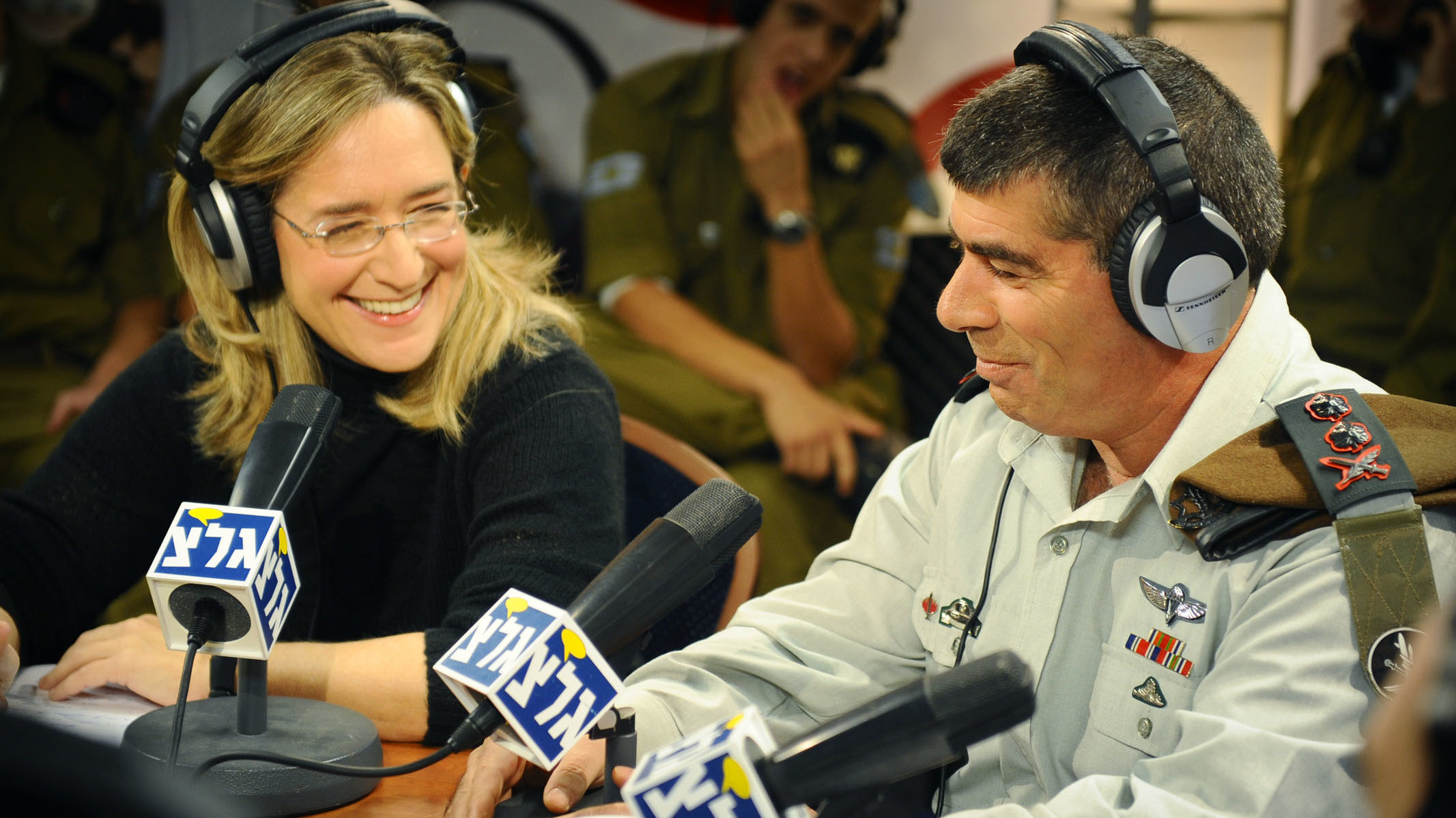Former Israeli Army Radio Head Says Station Is Irrelevant, Should Be Shuttered
Defense Minister Gantz decides station will be removed from ministry’s purview following accusations of politicization
One of Israel’s most popular radio stations and news outlets is staffed almost entirely by soldiers in uniform, many of whom go on to important positions in the civilian media. Its music programs fill buses, and its hourly news updates are as Israeli as falafel and hummus. Now, following accusations of politicization, Defense Minister Benny Gantz has decided that its time as an army station will come to an end. A governmental committee will decide its fate – closure or privatization.
Israel’s Army Radio (Galei Tzahal, known by its acronym, Galatz), one of the country’s most popular stations and news outlets, is to be closed or privatized, following years of accusations of politicization and a recent recommendation by the military’s chief of staff.
Army Radio first went on the air in 1950, with a broadcast by founding Israeli Prime Minister David Ben-Gurion. Since then, it has accompanied the Israeli day-to-day as well as historic events, a consistent presence in many households and morning routines.
Its sizable influence on Israeli society, however, stems not only from its widespread popularity but also from the fact that it has become a training ground for media personnel, many of got their starts at the station and later become mainstays of the local media industry.
Army Radio, a unit of the IDF, has long drawn criticism for alleged political bias from both sides of the political spectrum, more consistently from the Right. This has driven both a former chief of staff and the current one to push for the station to be removed from the IDF’s purview. Both men pointed to the station’s coverage of political affairs, and commentaries on the subject, as inappropriate for a military station and a central reason for its repositioning.
Following the recommendation of the incumbent chief of staff, Lt. Gen. Aviv Kochavi, and similar recommendations from Defense Ministry officials, Defense Minister Benny Gantz, himself a former chief of staff, recently announced that a committee will be formed to consider the future of the station, which will cease to be a unit of the IDF.
Gantz stated: “The decision I have made, based on the chief of staff’s recommendation, is a matter of principle and not of budgets. The free press in Israel is extremely important, and I will continue to defend it and protect its independence. However, the existence of an army radio station within the IDF is not reasonable at this time. I have ordered that uniformed personnel will not deal with political matters in any capacity, an unacceptable situation that stands in contradiction to the values of the IDF and the requirements of integrity and proper conduct.”
Although Gantz’s spokesperson said, “It wasn’t something that the minister just haphazardly brought to the press and tried to make a big political move,” some consider it a deeply political decision, made by a minister shortly before the March 23 national election.
The Media Line reached out to several Israeli media and communications experts, but all declined to comment, some of them apparently unwilling to touch what may be a political hot potato.
In recent years, Jacob Bardugo, a right-wing political commentator who is considered a supporter of Prime Minister Binyamin Netanyahu, has received increasing airtime at the station. This development may contribute to the view that the decision by Gantz, the chairman of the Blue and White party, was part of his tug-of-war with the prime minister.
One person who did comment, however, was former station head Yitzhak Tunik. He told The Media Line that Gantz had made the correct decision, but not because the station had become politicized.
“Army Radio has no place today because nowadays, it offers no value, not to the army, and not to public broadcasting. … [The station] had a lot of value not because of its coverage of current affairs, but because of the other things it did: its programming on matters of culture, food, documentary programs. … That was its biggest contribution, and that barely exists today,” Tunik said.
In his view, the issue was not that the station had become inappropriately political, but that the increased airtime given to political programs had simply driven the station away from its raison d’être and caused a general decline in quality.
If the station does close, it will also impact its audience, more than a fifth of the population.
David Cohen, who runs a small grocery store in downtown Jerusalem and listens to the station’s morning programs every day, told The Media Line, “It’s a pity. … We need another station in addition to [Israel Radio’s] Reshet Bet [“B Network”], another station that sort of ‘belongs to the establishment.’”
Reshet Bet, like Army Radio, provides extensive coverage of news and current affairs.
Cohen said there was something to the accusations of politicization, but this did not appear to concern him, as the station’s political commentators are not themselves soldiers. He does, however, think that station could be a bit more oriented toward the army in its programming.
Ephraim, who was standing in his empty hardware store in Jerusalem’s city center, has a different perspective. When asked what he thought about the planned closure, he snorted with laughter, “I don’t give a damn.”
A client who popped in concurred, adding that “they should take care of the poor and the Holocaust survivors. … No one cares about that.”


